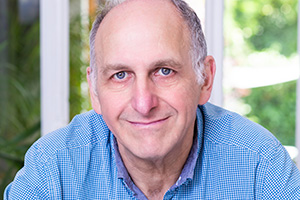I've got a great idea...
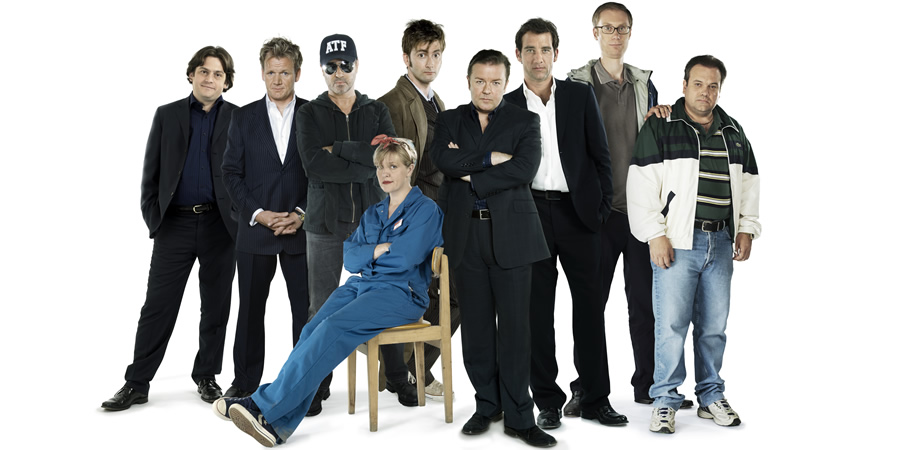
Dave Cohen discusses - when creating a sitcom - how you need to decide what your show is about, and then what it is really about. Also, you need to ask yourself why you're writing it, and why now...
I've got a great idea...
Where do you start?
We have to begin with the myth about ideas and stealing. No matter how many times I write this, I still get asked the same question - 'how do I stop my idea getting stolen?' Briefly:
Anyone can have a good idea
Omid Djalili had a great idea about movie extras, that was going to be made right up to the point when Ricky Gervais decided that his follow-up to The Office would be a sitcom about movie extras.
Anyone can have an unoriginal idea
Two blokes sharing a flat is not original, but Peep Show was.
You can't copyright an idea
Chances are if you had the idea, a dozen others will have. Try this - look at a topical comedy story and think of a joke for it. Now type the keywords into your Twitter search, you'll find 50 versions of it.
Your idea will not be stolen
Just because you thought of lots of funny jokes around the idea of a millennial having to live at home because they can't afford to move, doesn't mean the version that goes out on it is based on a script you sent them last year.
Every journey, according to the cliché, begins with a single step. If "I want to write comedy" is step one, think of your idea as step two.
What are you going to do with this idea?
There are so many ways to start, and it depends on many factors. The late great Carla Lane apparently used to sit down and write. And write and write and write, until eventually her brilliant and/or hugely successful sitcoms took shape. Anyone who has ever produced a finished piece of writing will admit there is an element of chaos around its creation.
What you're looking for is a compelling character or pair of characters who want something they can't have - and usually that failure is down to the flaws in their personalities. If it's a movie or a novel, those characters will go on a series of adventures and have changed by the end. If it's sitcom or comedy drama they will end each mini-adventure having learned nothing, and will return next week to repeat the mistake.
There isn't a right or wrong way to do it, but at the start of the process, day zero, I try and separate out a few questions to ask of my idea. It can - and should - take a long time to answer them, but by the end I'll hopefully be ready to move on to the next phase.
It's almost impossible to answer one of these questions without referring to the others, but they break down into the following.
1. Who is it about?
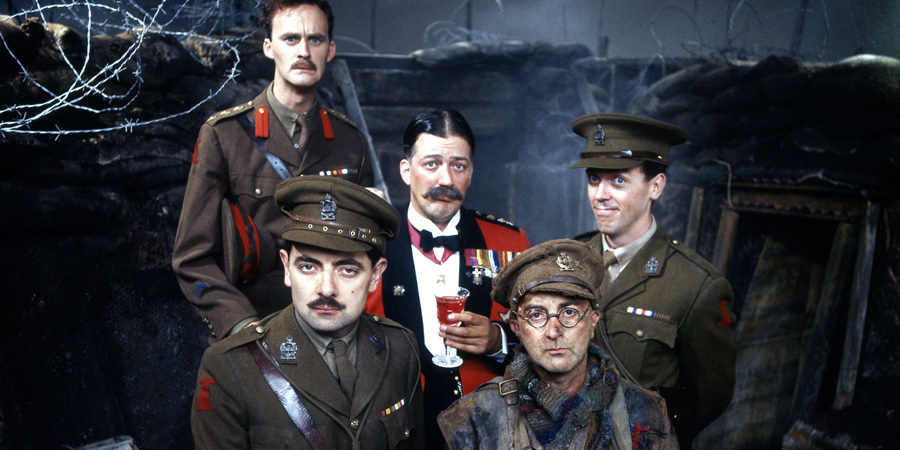
I'm looking for a character that feels like somebody new, familiar in some ways but with one new characteristic. It could be anyone.
I happen to be a bit of a politics nerd, so that's where a lot of my character ideas come from. In the years before he was Prime Minister, I had a sense that David Cameron was an updated version of Blackadder. He didn't have much, but he used it well, and only succeeded because the people around him were even more stupid and less devious than him. I couldn't get it to work. Perhaps I misread his character, or I couldn't find somewhere to put him without losing some of the David Cameron-ness that made him funny to me.
Maybe there really was nothing new about him.
My co-writer and I got a little further with a character who was a bit like Mhairi Black, the teenager who became a Scottish Nationalist MP in 2015, and who cited Tony Benn as her hero. Here was someone familiar, a passionately ideological left-winger with the new twist of being a teenager in the House of Commons. And she was set to learn about the compromises of working in Westminster for a less than left-wing nationalist party. The gap between what she wants and what she gets a perfect set-up for comedy.
We got as far as a radio pitch with her, and some funny ideas about the people around her, but that was it. Rufus Jones has since nailed the idea, perfectly, in his Channel 4 sitcom Home.
Ideally your brilliant new creation has characteristics we already recognise as funny, but have yet to see on screen. And at this stage, it's okay to think in clichés - too big for her boots, a fish out of water, loveable rogue - as long as you bring something new to the character.
Just because I'm a politics nerd doesn't mean I want to only write scripts about politics. Character is character, wherever you find it. The story is told that, as Hancock's Half Hour became more successful, one by one the eponymous Mr H dropped each of his co-stars, so by the final series it was plain Hancock and starred him alone.
Writers Ray Galton and Alan Simpson, who by now had had enough of the star they had created, quit the show, took the character of down-at-heel actor Hancock, turned him into a rag and bone man called Harold Steptoe and replaced his snarky sidekick mate played by Sid James with his snarky sidekick dad Albert.
If the character is strong, and works, you can take them anywhere, so take them to a really interesting place we haven't seen depicted in a show before.
2. What's it about?
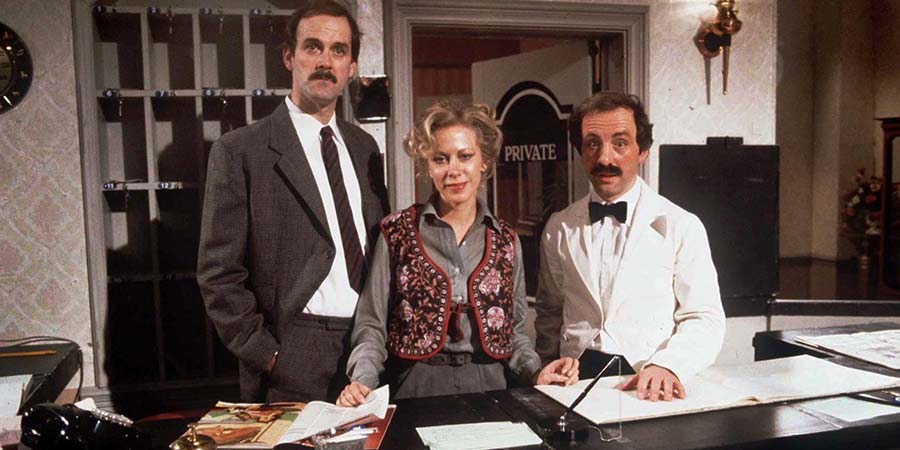
This is a nice simple question, and if you're writing a sitcom is more 'sit' than 'com'. It's about the Home Guard during World War 2. It's about the owner of a hotel in Torquay. It's about a bunch of friends.
This is the point at which you are still allowed to say "It's about a couple of 20-somethings who share a flat," without being greeted by the person you're talking to rolling their eyes and saying "No! Not again." "But," you reply, "here's the twist..."
3. What's it really about?
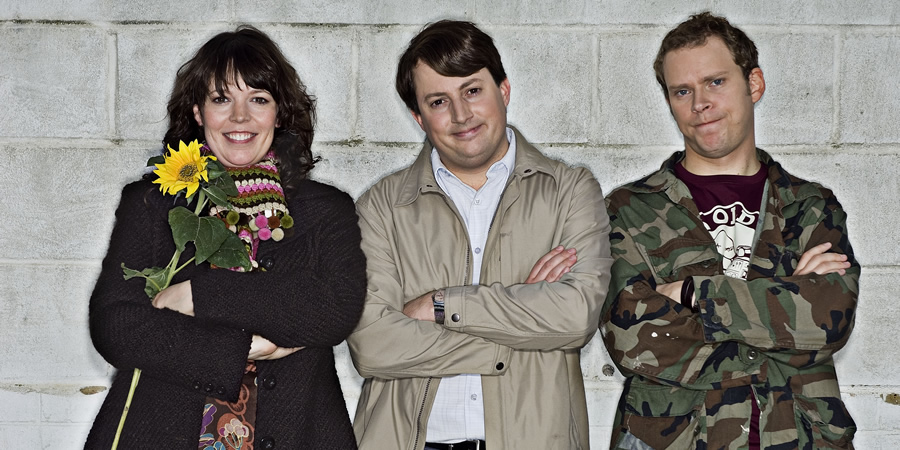
... and this is where we find out it isn't any old 20-something flat-share sitcom, it's Peep Show, which was one of the most original sitcoms of the last ten years. It took that one old idea and gave it the big contemporary twist of being about the first generation to graduate from college with bleaker prospects than the one before them.
When we ask what is a show really about, we're looking for things that haven't been said before. This is the question to which there could be many answers. Fawlty Towers isn't only about a hotel owner in Torquay, it's also what happens when you take a misanthropic character with a low opinion of humanity, stuck with a view of an English past that probably never existed, and put him into a job that requires sensitive people handling.
Friends isn't just about a bunch of friends hanging out, it's that crucial period in your life when you're still young enough to have crazy dreams about what you want to do, but old enough to understand that before long you'll have to decide whether to carry on living on the edge, or settle for that cosy but dull mortgage-paying existence.
We're also back at the first question, "who is it about?" Almost every creative work - sitcom, novel, movie - starts with a person who needs something urgently, and they're going to have to try really hard to get it. Whether or not they succeed - or rather, because we are in the world of dreams and fantasy, how they succeed - is what your work is really about... apart from sitcom. What your sitcom is really about, if you're writing one, is how they fail.
Don't just think "I've come up with a funny idea for a sitcom": explore what it means and how it resonates beyond the world you will create.
4. Why am I writing this?
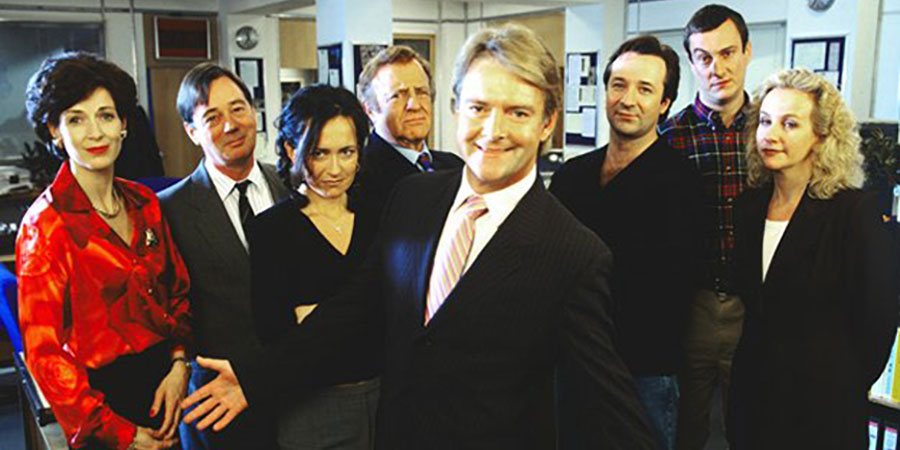
You may see people at work, or in your family, and spot something about them that's a glaring contradiction, but you haven't seen done in a sitcom or movie before. Tell me who the people are and the settings, and I could probably make a decent fist of creating it - but I probably wouldn't be able to add the personal detail and unique perspective you could bring to it.
By the way, this doesn't mean that because I used to be a journalist, I'm the best person to write a sitcom set in a newspaper office. Loads of comedy writers began their careers as journalists, and the first sitcom they wrote was set in their newspaper office (as was mine) and it never got made (as didn't mine), so I'm saving you the bother.
It's less important that they were journalists, than that the bloke sitting opposite you was a sexist bully or that the prim woman in accounts was a secret stoner, or that when you went to the pub on Friday afternoon with your expenses tab, unusual things happened.
So many of the stories from shows like Seinfeld and Friends came from the personal experience of the writers. It might have been a funny comment or a one-off moment, but the fact that it came from their reality made it believable.
If you're going to mine your friends and relatives for comedy gold, be sensitive, creative and intelligent about it. Your interpretation of Grandma's screaming temper may be funny but the rest of the family might not see it that way. And be careful not to libel people, unless you want to see the millions you make from your big hit show frittered away in legal costs.
5. Why now?
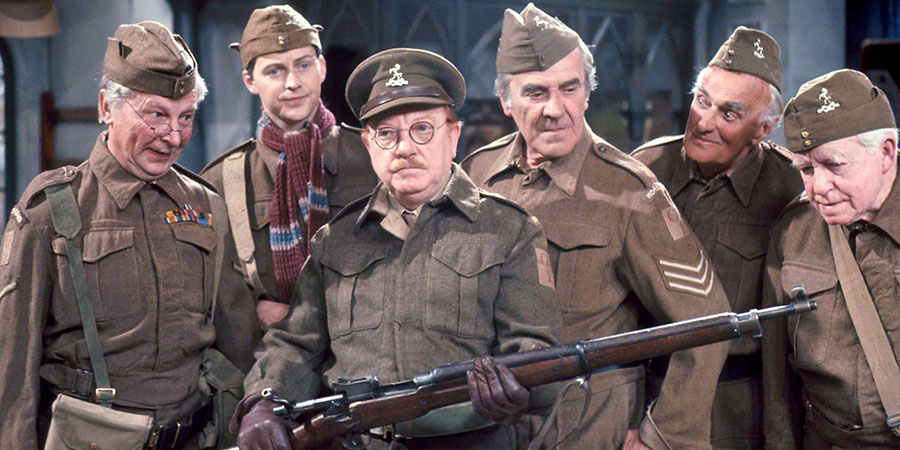
Let's say, as we're talking about fantasy, you write a really brilliant script, and everyone loves it, and it gets sold and made. Even then you're looking at an absolute minimum of seeing it on screen two years from now. Is it about YouTube video stars? Or the current travails of the Tory government? Or loom bands? In other words, will what you're writing now be out-of-date soon?
You're in luck with our competition, you already know we're not going to make your script, it's a calling card for future work. That frees you to be contemporary. Remember you've got two months to go, maybe you can spend the time working out a topical idea that you don't have to write until a month before you hand the script in.
We'd all love to write screenplays that are timeless, but even the ones that stay with us for decades like When Harry Met Sally and This Is Spinal Tap happened to capture the cultural moment. It's impossible to predict what will happen in the next two minutes, let alone two years, but you should at least try to look beyond what's already out there, and speculate where we might be heading.
You might not even know you were writing about something, until years later the thing happens and you discover you had predicted it. Recently I saw a review of Dad's Army written by Alan Coren in the 1970s, which described beautifully how the show worked because "behind the daftness lies a certain valuable poignancy which is not altogether explained by nostalgia. I suppose what I mean is they would have died too, if the greater folly had demanded it."
In other words, Dad's Army is every bit about the horrors of war as M*A*S*H. But how does that explain why the show continues to be successful half a century later, when nearly all of us have lived through an unprecedented era of peace? I think it's pretty obvious, the show is popular now because it taps in to our obsession with Europe - the idea that Britain once again finds itself standing alone against the rest of the continent. And you will enjoy that premise whether you are the most gung-ho Brexiter or the whiniest Remoaner.
That's a lot of questions to ask before you've even written a word of your manuscript. It may seem an enormous effort, but it'll have you itching to get started and the more time you spend at this end of the process, the simpler your task will be as you carry on.
This article is provided for free as part of BCG Pro.
Subscribe now for exclusive features, insight, learning materials, opportunities and other services for comedy creators.

